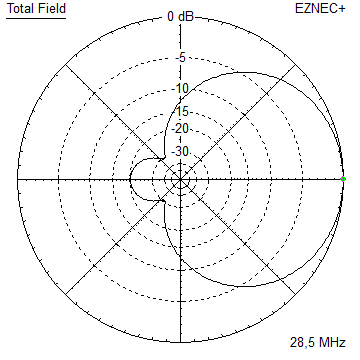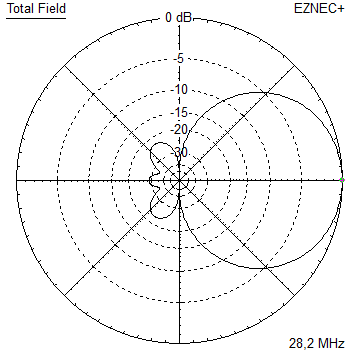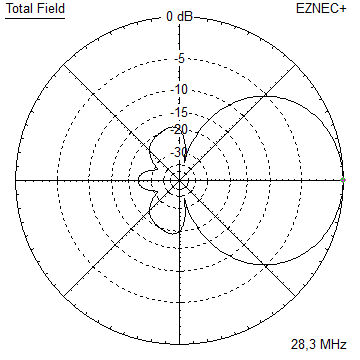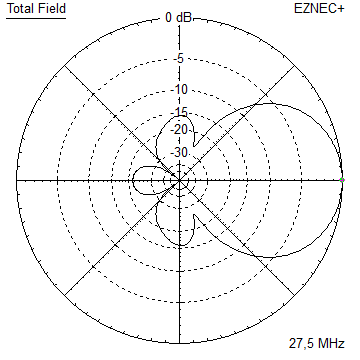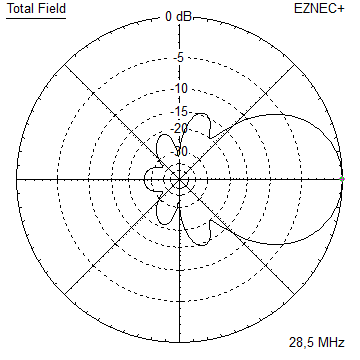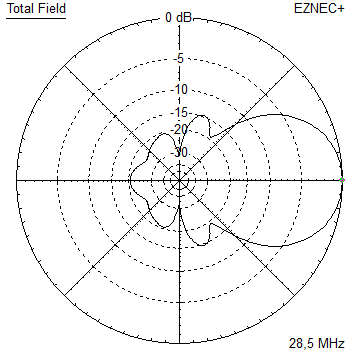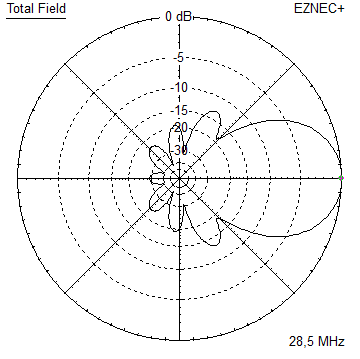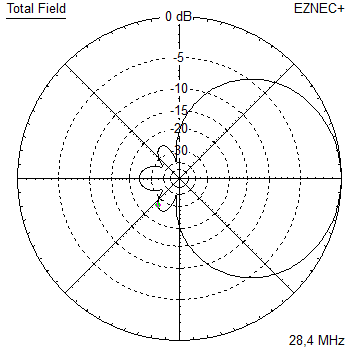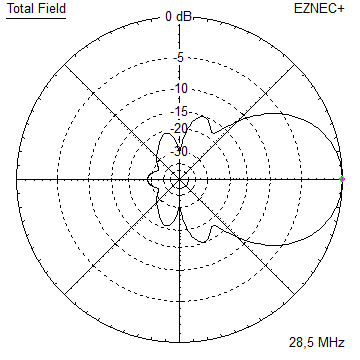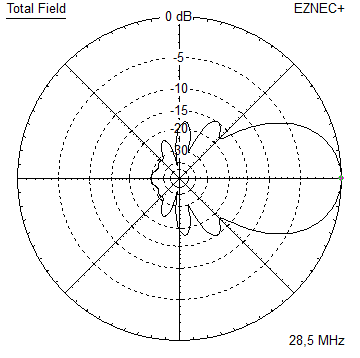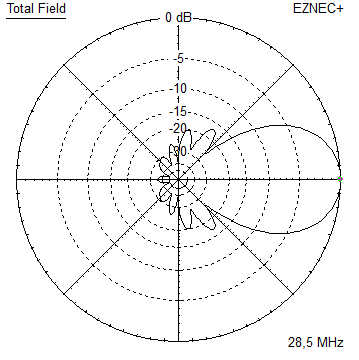
GTV 28-7w with bent Dipole
Digi Modes + SSB band 28.0 to 28.9 MHz
On 28 MHz we should less look for gain but very clean directivity, because if the band is open successful DX more or less comes down to fade out unwanted signals. If we can easily produce a signal that enables us to ping our own echo when twice (!) around the globe with less than 100 watts of output, we may pass on 0.5 dB gain. And when band is closed that little bit would not help at all.
The patterns scattering factor (dt.: Streufaktor) as ratio of all rear and side lobes against the beam lobe is what we should look for in first place.
Note: This is not a beginners Yagi. Like on VHF the bent dipole needs trimming regarding bending angle and final length. Thus you should be able to lower this Yagi for a few times on the mast easily for final trimming.
Design date of issue: 2020.10.28
GTV 28-7w built by Javier, EA1IF




2023-02-20 "Throughout the morning I dedicated myself to listening and observing the front, back and side, I only have one word, the antenna is like a sharp knife, it significantly discriminates everything that is not in its direction."
Note that this is a lower frequency version 27.5 to 28.5 MHz primarily by design.
Photo Credit: EA1IF, tnx Javier!
Lower frequency 27.5 to 28.6 MHz taper version as PDF
GTV 28-7w built by BG5TOX et all at BY5HB


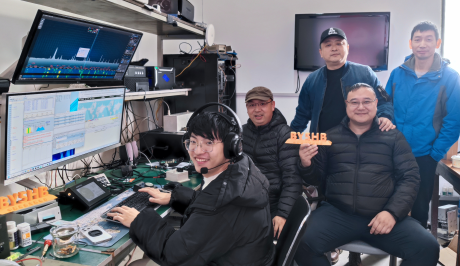
Currently this Yagi becomes known on the 11 m and 10 m band under a pseudonym or
battle name Mazinger Z:

This robot is constructed of a fictional material 'Super-Alloy' from the element 'Japanium' as a weapon against the 'forces of evil'.
Source basic Image before processing: https://de.wikipedia.org/wiki/Mazinger_Z#/media/Datei:Mazinger_Z_en_Tarragona.jpg
Quotes in above text: https://en.wikipedia.org/wiki/Mazinger_Z
Current distribution


Performance Data (28.5 MHz, 16 mm el.)
Gain vs. isotr. Rad. 12.3 dBi Gain vs. Dipole 10.1 dBD -3 dB E-plane 44.4 deg. -3 dB H-plane 52.6 deg. F/B -28.0 dB F/R -20.9 dB Impedance 50 ohms Mechan. Length 13629 mm Electr. Length 1.29 λ Stacking Dist. h-pol. (28.5 MHz) top-to-bottom 11.9 m or 38.9 ft side-by-side 13.9 m or 45.7 ft
Geometry
On Request ...
How many pageviews did this design get since Oct. 2020?
Pattern and VSWR Plots
Elevation and Azimuth plot at 28.5 MHz


SWR and Return Loss plots - simulated with 4nec2


Radiation pattern with Ground Gain (28.5 MHz)
• At 12 m above perfect ground

Gain vs. isotr. Rad. 17.8 dBi at 12 deg. Gain vs. Dipole 15.7 dBD F/B -29.1 dB at 169 deg.

• At 16 m above perfect ground

Gain vs. isotr. Rad. 18.0 dBi at 9 deg. Gain vs. Dipole 15.9 dBD F/B -29.7 dB at 172 deg.

• At 20 m above perfect ground

Gain vs. isotr. Rad. 18.0 dBi at 7 deg. Gain vs. Dipole 15.9 dBD F/B -27.8dB at 173 deg.
• At 24 m above perfect ground

Gain vs. isotr. Rad. 18.1 dBi at 6 deg. Gain vs. Dipole 16.0 dBD F/B -27.9 dB at 174 deg.
Stacking: SIMULATION OF 2 x VERT. STACK ABOVE GROUND
1. Yagi 12 m agl, 2. Yagi +11.9 m = 23.9 m agl

Elevation plot and data of 7 over 7 array at 11.9 m stacking distance:
Lower Yagi 12 m, upper Yagi 23.9 m above perfect gnd

Gain vs. isotr. Rad. 20.0 dBi at 7 deg. Gain vs. Dipole 17.9 dBD at 7 deg. F/B -29.5 dB at 173 deg.
73, Hartmut, DG7YBN
